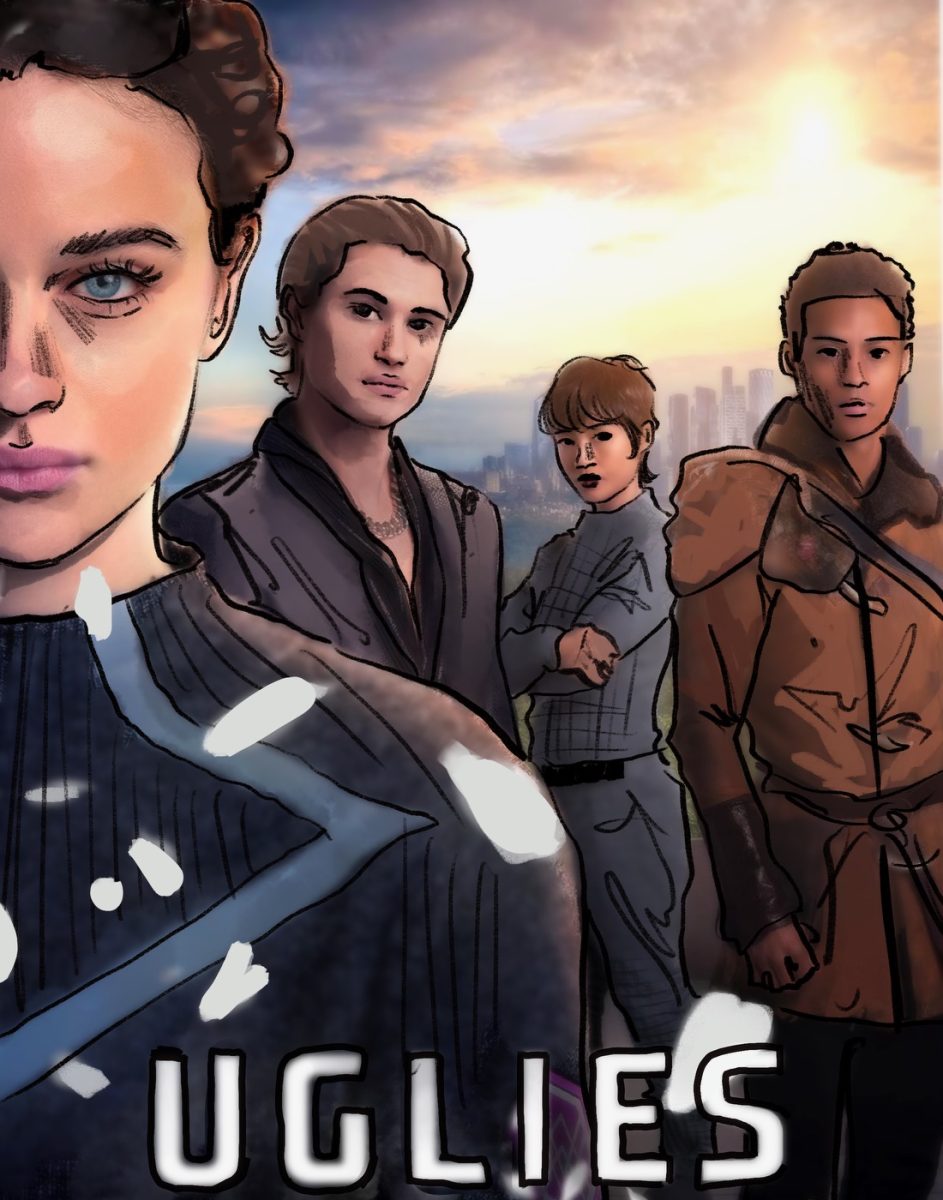The young adult dystopian craze, once a cultural phenomenon, seems to have lost its luster. With “Uglies” (2024), the latest attempt at resuscitating the genre, the trope feels more like a botched face lift than an actual movie. “Uglies,” based on the 2005 book series by Scott Westerfeld, creates a world where society eliminates the divisions of class and greed via a great equalizer: beauty.
On their 16th birthdays, all teenagers undergo a life-changing procedure to make them physically perfect. Those aged 15 and below are called the “uglies”and reside outside the towering city inhabited by the “pretties,” where the rest of the world remains unknown. Tally Youngblood (Joey King) is just months behind her best friend, Peris (Chase Stokes). As he gets his procedure done, Peris turns into a shell of his former self and dismisses Tally as insignificant to his new life.
As Tally anxiously awaits her own transformation, she meets Shay, another “ugly” with the same birthday. They spend their time riding hoverboards and secretly reading books about the outside world. However, as the fateful day approaches, Shay reveals her intention to reject the procedure and live authentically by escaping to the Smoke, a resistance group. When Shay is reported missing, Tally embarks on a mission to find the group and bring Shay back so she can finally undergo the operation to turn pretty.
Once Tally reaches the Smoke, she meets David, the leader of the resistance. However, as secrets begin to unravel, Tally’s world is turned upside down, and she’s forced to reckon with the problems of her old belief system.
The first major flaw of “Uglies” — the writing — becomes evident within the first two minutes of the film. The movie relies heavily on exposition, explaining the world in dense detail while doing nothing to further the plot. It feels as if the viewer is being force fed the story, with little nuance or subtlety. The writing also makes the movie very predictable, and every struggle is resolved instantly. For instance, Tally’s journey to the Smoke, which should have been a challenging endeavor, is instead completed in a brief montage. This ultimately undermines the film, leaving viewers with little sense of payoff.
The pacing of the movie is erratic, making it feel wholly unrealistic. The film was rushed, with crucial character development quickly skipped over. The movie should have lingered on these movements instead of jumping from scene to scene, which would have given the movie some sort of significance. The relationship between David and Tally is so glossed over that it leaves the audience with a watered-down romance that contributes little to the plot. However, Tally and Brianne Tju (Shay) manage to bring some authenticity to their characters, allowing viewers to root for them throughout the film.
The movie fails to evoke a strong dystopian atmosphere, particularly in its portrayal of the contrast between the “uglies” and the “pretties”. It does not help that the “uglies” are all beautiful Hollywood actors. If the film had depicted the “pretties” in a more radicalized manner—similar to the Capitol in The Hunger Games, with its outlandish and over-the-top aesthetics — it could have exaggerated the contrast between the two groups and better conveyed the dystopian themes.
While the premise is good on paper, the movie ultimately feels soulless and stiff, resembling a tired formula in every young adult dystopian movie. It is not bad to be campy, but this movie is not deep enough to put a smart twist on the genre as we know it. Overall, “Uglies” comes across as aggressively mediocre, and is an ugly stain for the young adult franchise.






























